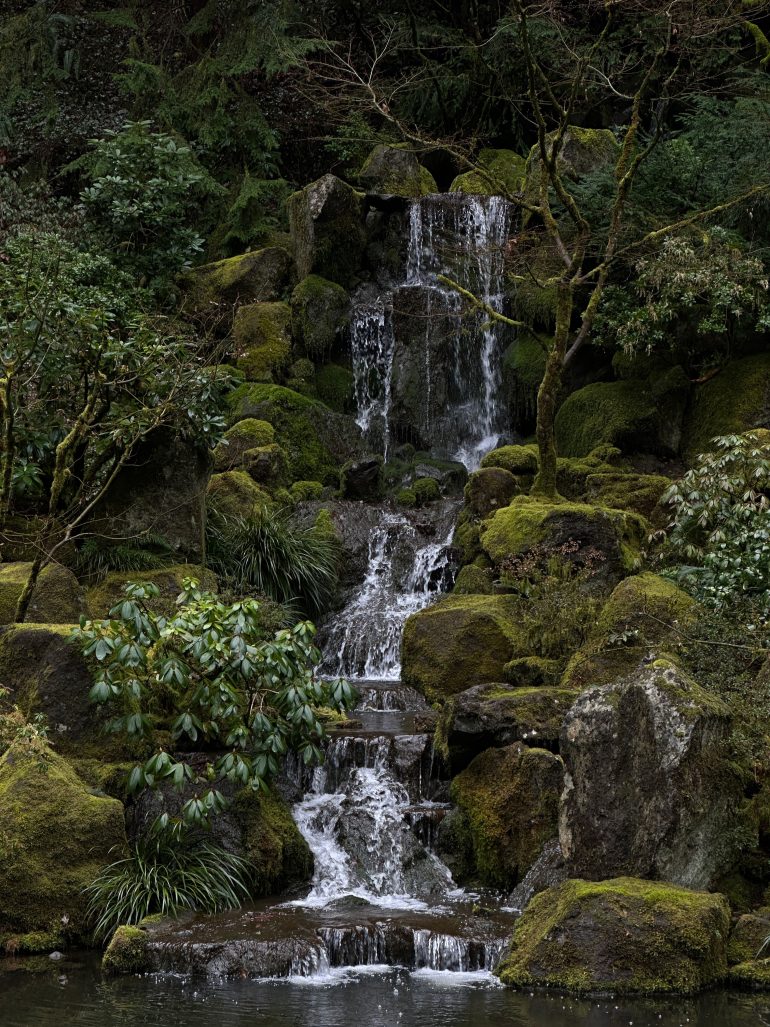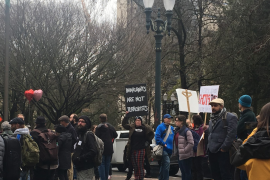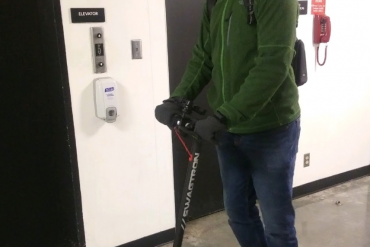The Portland Japanese Garden is a place of thought. It’s quiet, peaceful, and above all, its importance to the Portland community could not be more relevant today.
When we students get wrapped up in our studies, it’s easy for us to forget how important it is for us to get out of our workspaces and reconnect with the gentle embrace of nature. Those kinds of opportunities may be incredibly nurturing, and help bring a sense of inner peace and ease tension that was unknown to us at the time.
In 1961, Professor Takuma Tono of Tokyo Agricultural University was contacted by Mayor Terry Schrunk and members of the Portland community to build a Japanese garden on the site of the old zoo in Washington Park. There was a desire to provide citizens of Portland with a way of viewing a garden that boasted serenity and tranquility, but also was a stepping stone in healing the connection with Japan after World War II. In 1967, it opened to the public for the summer for the first time, with 5.5 acres of five different styles—compared to Japan’s singular style—allowing visitors to experience a multiplicity of styles of Japanese culture within its walls.
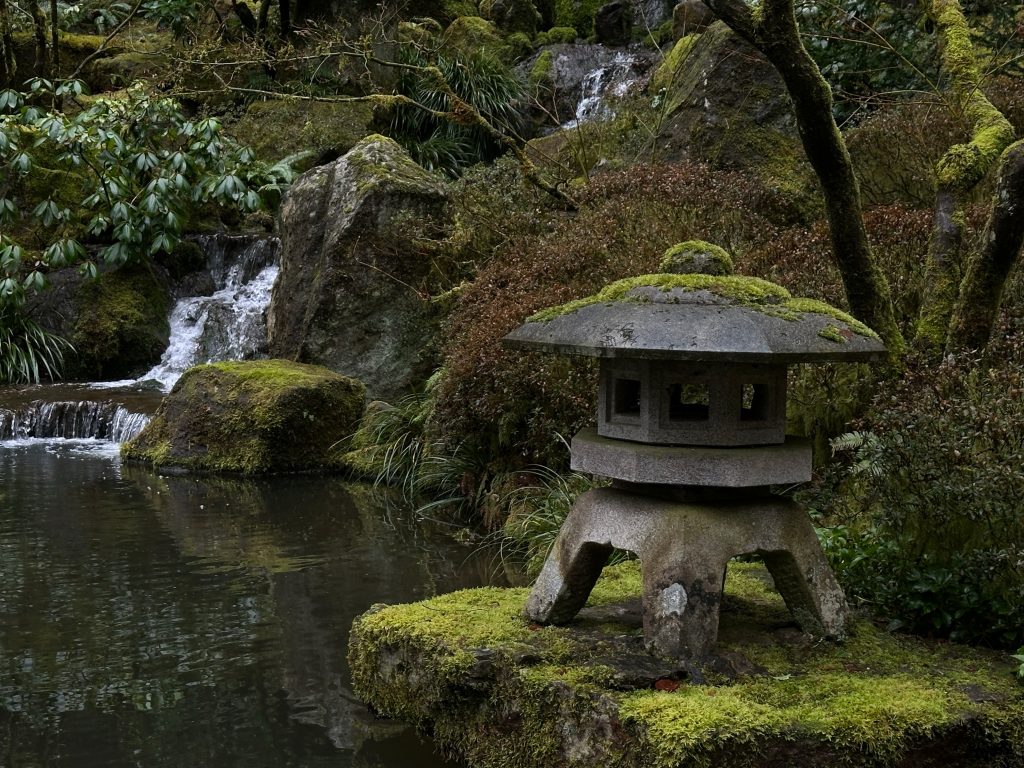
As the garden was constructed, Professor Tono realized that there was an interrupted view of Mt. Hood from the East Veranda. This then became an example of shakkei or “borrowed scenery” where a natural view of a landscape is incorporated into the design of the garden. It’s reported that Professor Tono even compared this view of Mt. Hood to a view of Mt. Fuji when constructing the East Veranda’s panoramic view.
As of today the garden has eight separate styles as you venture through it, and includes an authentic Japanese Tea House, as well as the view of Mt. Hood. There are koi ponds, waterfalls, zen gardens, and many other points of interest. It’s meant to be a place where you can to to discard heavy worldly thoughts and see oneself as a small but integral part of the universe—that was one of Professor Tono’s desires when creating the garden’s design, that humans are not made to feel too small in the scale of the garden, but equal.
As the garden passed its 60th anniversary as of 2023, it marks a new chapter in Japanese culture. Year 60, or kanreki, is the mark of the start of a new chapter, or a rebirth, and is meant to embody hope and possibilities. Much of the world has gotten back to its feet and put much of the pandemic behind it by the time that 2023 was behind us, and the term kanreki could not have been more relevant. Many people are getting back on their feet and beginning to return to the lives that they were pursuing before COVID-19 took over the world and left the lives of many new generations in stasis. However, as 2023 ends, and news of the events going on in Gaza spreads around the world, places like the Portland Japanese Garden are even more important for the community of Portland to come to in order to come together for harmony and peace. It is a place authentically dedicated to the needs of diverse cultural communities in and around Portland, but also those who come to the garden from elsewhere, creating a unique, far-reaching bond that lasts long after one leaves the grounds.
Executive Editor Eva Sheehan and I caught up with Lisa Christy, the newly appointed director of the Japanese Garden to talk about the garden and its future:
Beginning of Interview
Will Boechler: I was wondering if you could tell us a little about yourself and your new role at the garden.
Lisa Christy: It’s funny, I don’t normally tell my own story… So professionally I came from the world of advertising and marketing promotion. I taught it at the University of Tennessee and I worked in ad agencies for all of my career aside from that. That’s really my professional background. Once upon a time when I started out in life I started out in music. I did that pretty seriously as a piano performance major and a vocal major up until my sophomore year in college, and I’m only telling you that because I grew up with a deep appreciation and engagement with arts and culture and it was really a part of my DNA.
Once I realized I really hated being in practice rooms and couldn’t see myself doing it for the rest of my life I figured I should switch gears. So professionally I went to marketing a promotion but I always had a deep appreciation as part of who I am and what I value so highly in life and how we function and how we thrive as a society, so… As I kind of widdle along my professional life I worked on a few accounts in ad agencies that exposed me to japanese culture as well as tourism; I worked on Travel Oregon for a while and felt how gratifying that was, both of those were to learn about another culture and promote this state, this city that i love so much, and doing a lot of work for something that gave back and made a difference in my community—you know, bringing tourists helps the economic vitality of our city.
So all that is to say when the position for the director of Marketing and Communications became available, I took a look at myself and it and thought this was an interesting way to pivot my career and take on a new role in an area that I think is personally gratifying and also can make a difference, and kinda make use of these skills I’ve developed over the years. I started out in that position, and that was about nine and a half years ago, and I fell in love with it. I had never worked at a non-profit before, it was always for profit or education and it was something more gratifying than I even expected. To do work at a place that is so meaningful to so many people both on a local level, on a state level… Our U.S. and Japan relations are made better because of this place… That feels really important in that it contributes to our sort of emotional well being as well as our economic well being… That has been a really personally gratifying thing for me to do.
Will: I love how your background has influenced your actual personal interest in the arts and culture and development of the garden. I also have a personal connection to place and having an appreciation for the arts in culture in that same way, so I hear you.
Christy: Well that’s interesting because that never goes away, that’s inside you… So even if you put it on hold for 5, 10, for me it was almost 15 years, it was something that never goes away. It’s yours to sort of reinvigorate when you’re ready.
Will: Absolutely… And kind of returning to cycles and beginnings of sorts, the last time The Sentinel spoke with you guys it was during the 60th year celebration and Rui Sasaki’s beautiful glass work that was a part of the garden, I was like… enthralled by it—
Christy: I’m so glad you came and saw that work! It’s stunning.
Will: It was so beautiful.
Christy: I’m so glad to hear you say that. It was.
Will: I did some research and I saw the year 60 in Japanese culture signifies the beginning of a new chapter. And I was wondering how a new beginning and that concept applies to you?
Christy: I think that it truly applies for me because quite literally I’ve taken on a new role and it’s one that I feel I’ve been growing into, but y’know with new titles and new job responsibilities and at least for me, it requires you to take a step back and self evaluate and think about who I am, what do I bring to this role? And I think that is when we talk about new beginnings the way I’m approaching it. I’m not the person who was here before me, she had incredible wisdom, education, insights, but I’m not her. I bring my own perspectives, background, my own strengths, to this role, so it’s a reminder to do a little self discovery, and remind yourself what your own superpowers are, and then try to really find those and apply those every day. I’m a big believer in that, when we are honest with ourselves about what our strengths are. And what we don’t do as well. Cynthia [the previous director] had a law degree. I don’t.
I bring a lot of mindfulness when it comes to the management of people and that’s something that I really try to approach every day with. How can I redefine this role in a way that helps see people, help elevate them and support them in what they do… I think that’s really what it’s about for me. Remembering what my own superpowers are and finding the strengths and bringing them each day that redefines this role and makes it mine.
Will: That’s amazing, again with your piano background and your appreciation, I love how you’re using roots, it makes me think of all the many trees in the garden and how for so long they’re developing into these beautiful—
(Lisa lifts her left arm, revealing an image of a tree with deep roots that are intricately intertwined together, creating a bond.)
Christy: This is my tattoo. It’s a tree that I had tattooed about, twenty years ago or something, because to that point, it’s this idea of keeping your feet firmly rooted in the ground, and then always having your arms continuously reaching upward and aspiring for more even while you stay grounded. That’s an image I find really personally inspiring and something I aspire to as well. So. I apologize if I interrupted you…
Will: No no, it’s alright, I love that connection. That’s sort of what I was thinking, that it’s like a lot of our moving forward through life now is kind of like re-finding our footing.
Christy: Well I love what you said there, you’re right, I think we all got put back on our heels, right? So we’re all trying to find our footing and I think that really the best way you can forge your own path forward is really from looking at yourself and what it is that you are made of, what is a part of your DNA, and trying to discard the things you don’t do well and do the things you do.
Will: I also continuously try to grow and it’s hard to recognize the weaknesses as much as we love to find our passions, we kind of have to take that harder look at yourself but it’s necessary to get a more well rounded picture of yourself…
Christy: I sound like an old woman, I’m okay with that. It’s easier the more you live. Because you’ve had others tell you what it is that you do well but you’ve had others tell you what you don’t do well. You’ve had experiences, you’ve had enough time to say like, “Oh, I keep trying this and I keep not doing well, there’s probably a reason. Maybe I should look inside” or “This makes me really unhappy. Maybe I should really consider why that’s the case”. Time is one of those gifts that we really wish… Well, I’m gonna get real philosophical, I’m just gonna stop—
(Lisa laughs.)
Will: No no, not at all! My next question sort of in relation to like how we continuously grow and bloom, the cherry blossoms are coming, which is very exciting, and kind of going along with theme of new beginnings and time and growing, do you have any advice or words for young people or students that may be trying to find themselves this spring in their own sort of new beginnings or bloomings of sorts?
Christy: Oh my god, I love that question so much. It’s such a beautiful question… I don’t know that I have great advice but I’ll share what I have. One of them is… saying thank you. Honestly, it works really well in so many ways. I’ll give you some specific examples. When we’re at a loss for what to say for anything, filling the gap with “thank you” rather than all sorts of other alternatives… It’s like… “Sorry I’m late”, or “Thanks for your patience.” And that sort of really specific but also translates into something that ends up really making those personal connections with people and elevating their mood, elevating how they feel about you, in a way that just silence or nod in acknowledgment really does.
And I know I’m sort of talking in circles a little bit but the best advice I was ever given was R is greater than W. Relationships are greater than work. And that was given from like a women’s CEO conference I went to, I mean it was a really super smart, really accomplished woman, and what she talked about though was you can do the greatest work of your life, be the smartest person in the room, but if people don’t trust you, they don’t feel that connection with you, they’re not gonna listen. They’re not gonna want to put into effect what you might be talking about. The R is always greater than the W, even when you’re doing the best work of your life. So saying thank you is a really good first step in doing anything.
I was at a reception the other night, and you know, sometimes networking is really hard. You walk into a room full of people, you don’t know them, you know you’re supposed to go introduce yourself, it’s super awkward, you don’t wanna do it, right? Going in with “Hey, thank you for being here today!” or “Thanks for taking a moment to talk to me about this?” as an opener?! Very disarming. People are like “Oh! Of course! Who doesn’t wanna be thanked?”
So the real advice is R is greater than W, but the practical advice is saying thank you as a opener, a closer, a filler for things, it will help you.
Will: That was so well said, wow.
Christy: Oh, I wish it were mine. I’m borrowing from people smarter than me and these are things that I’m applying. That’s the beauty of once again, of age, and Sadafumi Uchiyama, our former Chief Curator told me once, he said when you’re younger through the first half of your life you collect and earn and in the second half of your life you spend. So I’ve been spending the first half of my life collecting these pearls of wisdom and things I’ve known and that have worked for me and now my job is, “She said that, that was really smart, I’m gonna pass that along.” So let’s be generous with our knowledge.
Will: I agree! Share the knowledge! I love that your mindfulness plays into that too. It’s, you know, being honest with yourself. Honesty and thankfulness is very, very important. It’s especially now in this day and age. I was raised in the Midwest and they always say, “Say you’re Please and Thank You-s”.
Christy: Oh, yeah… Where did you grow up in the Midwest?
Will: I’m from Fargo, North Dakota!
Christy: Get out of here! So I grew up in Nebraska. So they’re very similar places like people like… are people from there? It’s like… well… Yeah… So I know. I know. I’m with you. I get it. I feel it, the struggle is real. But it is real. Oh my gosh.
Will: But isn’t it awesome here in Oregon?
Christy: When I moved here, it’s been, I moved here in 2005 so it’s almost been 20 years. I moved here, I saw the trees and the green and I was like, well, no more moving! I’ve moved all around and I’m not going anywhere else.
Will: That’s how I feel. I’m like I’m stuck here.
Christy: I’ll tell you what, 20 years later, I’ll tell you what Will, I still look out at the Doug Fir silhouettes on the horizon or the tall trees, and I feel the same wonderment today that I did 20 years ago. It carries you through.
Will: I love that. I love that part of connecting with people. And since I moved here, it’s just everyone has this story that is much more deep and vast… There’s not really an appreciation for that in the Midwest sometimes.
Christy: It sometimes is a little harder to get to, but people will surprise you when you ask questions, really thoughtful questions, like you’re asking. So, you know, kudos to you for asking really good, insightful questions.
Will: Thank you.
Eva: Thank you again for meeting with us and giving us a bit of your time. I’m sure you’re busy with the gardens and everything that you do. It’s really great that you can give us a little bit of your time. Going into my first question, I have visited the gardens twice now. The first time Will showed me them and I was amazed. I’ve always been someone, especially recently, very inspired by Japanese culture and Japanese media and content. I love Studio Ghibli and I especially love Japanese landscaping. The fact that these gardens are here is such a cool thing—they’re like right in my backyard.
Looking through the Japanese garden website, it seems like the gardens are not only for aesthetic appeal, but they also serve as an international connection. I was just wondering if you could elaborate on that and how it brings forth this Japanese culture into the Pacific Northwest?
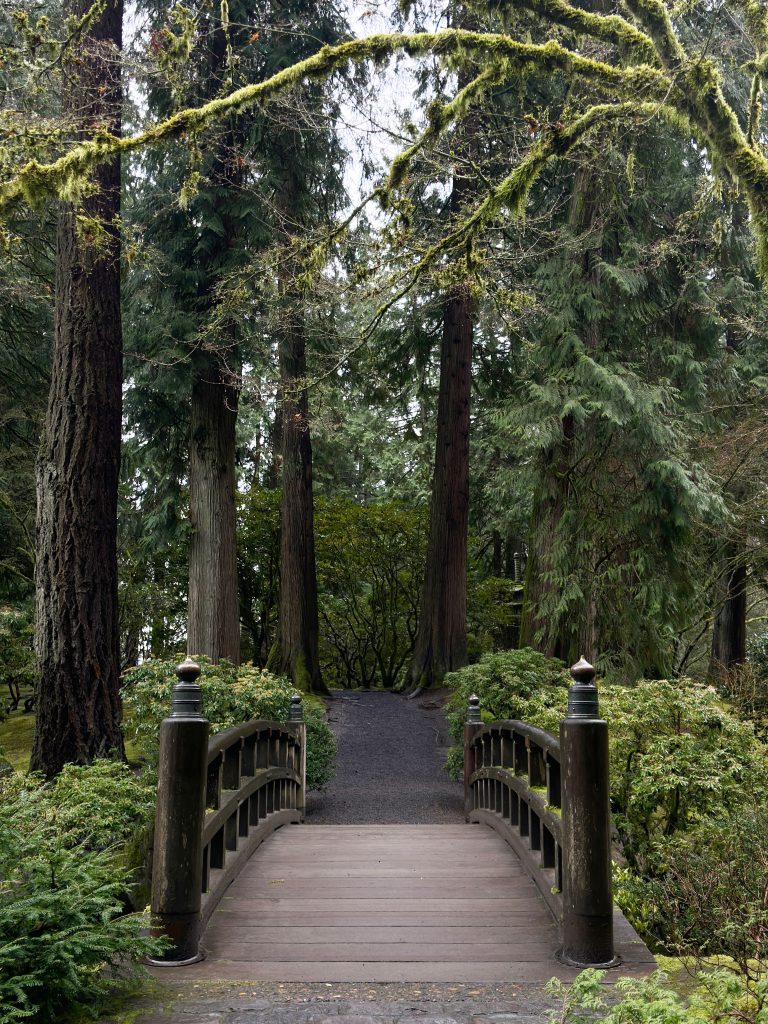
Christy: Well, I can speak to that a little bit. The garden was created as a way to share different elements of Japanese culture. We have five garden styles that it was originally created from, which you see on our website. The idea though is that you don’t go to Japan and see it. these five different garden styles. That doesn’t happen. And that’s only because the idea behind this garden is to showcase different elements or different eras in history, and different elements of Japanese culture. That’s really where it starts, recognizing that this garden is an amalgamation of thousands of years and different parts of Japanese culture. It’s not just one monolith. As any country, any group is not just one monolith. And even in a homogenous society, as much as one is in Japan.
Eva: Moving on to kind of the next question I had which is a little bit more of a personal question—What is your favorite feature of the garden and why?
Christy: Well you know Eva, we’re not supposed to have favorites. It depends on the season and sort of my mood so bear with me for a longer answer than you probably wanted. In the winter time, the garden is less busy, of course. It’s quiet in the winter time. And one of my favorite elements is walking in and as you go into the lower pond, there’s a bridge there called the moon bridge. You stand on the moon bridge and the big tall douglas fir trees. In the wintertime you’ll often stand there and it’s moody and it’s cloudy and the fog comes rolling in and just hangs over the garden in between the trees and it is impossible to capture in photos and I know because I’ve tried four or five thousand times. The only thing you can do is stand there, just feel it, just see it, and just experience it. There’s something so moody and beautiful in that moodiness that, you know, the Gen Xer in me just absolutely loves. I don’t think it’s a Gen X thing. I think it’s just the human in me [and] the wintertime mood that’s happening. I love it.
There’s another element that’s totally unrelated called a shishi-odoshi. And the translation is “the deer chaser”. It’s like a very fancy scarecrow. And by that, I mean, it’s a fountain. It’s the bamboo that if you fill it up with water, it goes down and goes bonk, bonk. If you’ve seen “Kill Bill”, it’s in there. I love it because it is so consistent, it just keeps on, and it is so small, but kind of whimsical, also practical, but keeps on going and going. It’s completely just this natural, beautiful little bonk bonk.
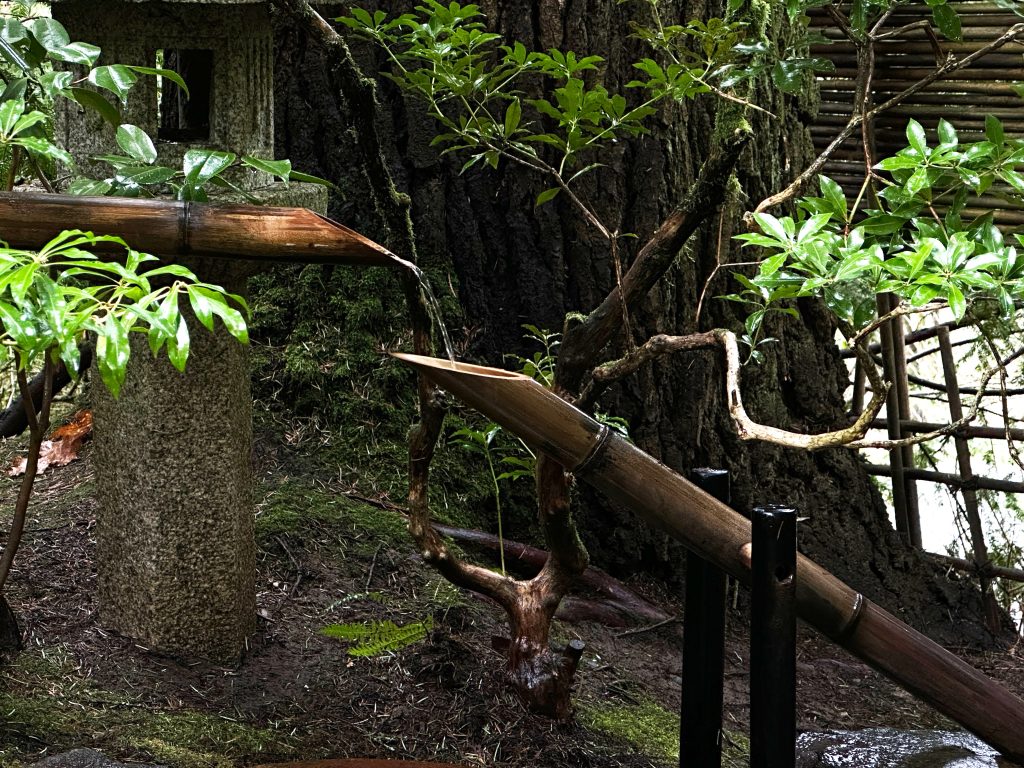
Other times, I know I keep going, but bear with me. And we’re not supposed to have favorite seasons, but I will say fall is stunning. If you were here during the Rui Sasaki exhibition, you get to see the vibrant, fiery colors of fall—fall is already my favorite season in life. To see it in the garden is just, it’s exhilarating. And that’s not what a Japanese garden is supposed to be. Like there’s purposely not a lot of flowers. The greens and the water are very cooling and that’s why you walk in and you feel so serene, because there’s no bursts of color everywhere, except during fall. Especially in these two weeks that it’s really peak [season]. I’m such a dork for the colors of the fall. So I’ll stop it. But it’s hard to say because there are different seasons, different elements, and different moods.
I’ve been here for almost 10 years and I’ve strolled through the garden a whole bunch of times. I love walking through and seeing the different places that mean different things that are really personally meaningful to people. People get engaged in the garden. People come here to mourn loved ones and there’s benches that they sit on and they remember people they love. I can see that happening throughout the garden. Every little spot is a really special place and it changes season by season. So, more information than you were asking for, I’m sorry.
Eva: No, that’s perfect. I agree with all of those. And for sure, I feel like the more I go to this garden, the more things I’ll find that I’m like, “Oh no, that’s my favorite.” But I definitely feel you on the moodiness and the fogginess of the hills in the garden. I think that’s such a thing that drew me to Portland. It’s so beautiful and it for some reason makes the colors shine even more than you would think even in a sunny atmosphere. So it’s so lovely that you also enjoy that and all those other little aspects of the garden. My final question for you is kind of going into just the beauty of the gardens, but what is the importance of curated parks and gardens and nature? What would you say is the reason why we should support these natural areas and cities and what it brings to our community?
Christy: I love that. That’s a great question. It’s one we’re talking about a lot right now. I think having these natural spaces is so important because nature is something that we all share. You know, we were just talking about like, “Oh my God, I felt the same way with the fog. I felt the same way with the trees.” This is something that we all share and because we’re all basically made out of the same biological ingredients, right? We feel it in a place that is not the not the prefrontal cortex. It is part of who we are inside as organic creatures. And because of that, these spaces don’t just keep us healthier mentally or they keep us healthier physically, but they help really connect us to one another and to ourselves. I don’t think I’m overstating it. I think it’s really important because they allow us a place to stay healthy, be healthy and also to help understand other cultures too.
You asked about curated gardens or natural spaces. Natural spaces in and of themselves are really important for us as human beings, but cultural gardens are that plus allowing us to help understand one another, people we may not know a lot about, we may not go visit that country, we may not understand that culture, but we can go to a garden, and we don’t need a translator. We don’t need a lot of background. We can see it, we can feel it, and we can understand that culture in a way that helps us understand them more and feel it more deeply or more internally. That’s why the Japanese garden was started—as a place for different people to understand one another, particularly for the Portland community after World War II—to understand the Japanese community much better in a way that is very emblematic of their culture, but also something we all share. When you see any culture, whether it’s art or nature, or food is a great example too. These items are elements of life that we need on a fundamental level. When we experience that from another culture, we have this sort of organic and natural empathy towards one another, like, “Oh !” you like this, I like this too. Or “I’ve never had this, but I love it.” “I’ve never seen this before, but it’s incredible”. That deep level of understanding for one another is something that helps us, you know, pursue a more peaceful and harmonious world. You know, when we understand one another better, we’re less likely to give up. into arguments or get into war with them. So nature [plus] healthy cultural spaces is even more healthy. That’s my summary statement.
Eva: I love that. And it’s so true. Like, how can you go into this garden and want violence or feel angry?
Christy: Well, that’s true, you know these places create safe spaces for us, safe spaces for ourselves, and safe spaces for our interactions with others. We had the executive director of the Nobel Peace Center come to our 60th anniversary Gala back in October and in her talk she talked about having dialogue. The Nobel Peace Center is very big on dialogue. The only way we can truly pursue peace is engaging in dialogue to help to understand one another. But dialogue really only works when you are in a safe space. Gardens like ours, the natural spaces you’re talking about, those are the places that create the safe spaces— where our defense is lowered and where our hearts open up to one another. Through that, we can engage in more dialogue. We can engage in that empathy towards one another. It’s essential to how we engage in more dialogue. How we get through life in a more productive and peaceful way.
Eva: For sure. Thank you so much for all these lovely answers.
Will: Yes, thank you so much, and thank you for taking the time to talk with us.
End of Interview
To learn more about Lisa Christy or The Portland Japanese Gardens, you can visit the website https://japanesegarden.org/.

